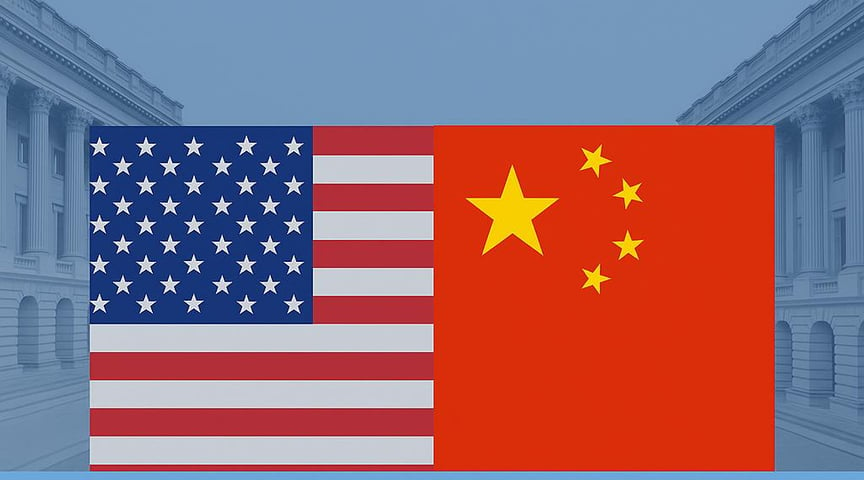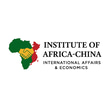Caught in the Middle? What U.S.-China Rivalry Means for Botswana’s Foreign Policy
As U.S.-China rivalry reshapes global politics, how should Botswana position itself? A look at strategic non-alignment, regional leadership, and smart diplomacy.
Dr. Alicia Keimetswe
4/24/20253 min read


Introduction
In the unfolding drama of 21st-century geopolitics, the strategic rivalry between the United States and China is perhaps the defining global dynamic. What began as a competition in trade and technology has expanded into ideological, military, and diplomatic realms—shaping global alliances and dividing spheres of influence. For smaller but strategically positioned states like Botswana, this rivalry poses both a challenge and an opportunity. The question facing Botswana’s foreign policymakers is clear yet complex: how does the country sustain balanced and beneficial relations with both powers without compromising its sovereignty or strategic autonomy?
A Delicate Balancing Act
Botswana enjoys longstanding relationships with both the U.S. and China, albeit of different character and scope. Relations with China have grown rapidly over the past two decades, marked by infrastructure development, educational exchange programs, and increasing diplomatic engagement under frameworks like the Forum on China–Africa Cooperation (FOCAC). Chinese-built roads, buildings, and stadiums stand as physical symbols of this relationship. Botswana has also benefited from medical assistance and technological transfers—particularly during the COVID-19 pandemic.
Yet these engagements have not been without criticism. Concerns persist over transparency in project financing, the dominance of Chinese contractors in local procurement, and the long-term sustainability of debt. Nonetheless, China's approach—often framed as pragmatic and non-intrusive—remains attractive to many African countries, including Botswana, for its emphasis on mutual benefit rather than conditionality.
In contrast, Botswana’s relationship with the United States is grounded more in shared democratic values and governance ideals. The U.S. has supported Botswana through development programs, trade initiatives such as the African Growth and Opportunity Act (AGOA), and military training collaborations via U.S. Africa Command (AFRICOM). Washington also remains a global leader in higher education, technology, and institutional finance. However, American engagement with Africa often suffers from inconsistency—subject to shifting domestic politics and international priorities that sometimes overshadow sustained bilateral investment.
Risks of Strategic Alignment
While Botswana has benefitted from relations with both superpowers, the growing hostility between Washington and Beijing raises the stakes. As both countries seek to expand their influence across Africa, nations like Botswana risk becoming diplomatic battlegrounds. Whether through pressure to exclude Chinese tech firms like Huawei from national infrastructure or subtle expectations on how to vote in multilateral bodies like the UN, Botswana may increasingly be forced to take sides on issues that do not directly serve its interests.
Moreover, the rivalry extends beyond diplomacy into the realms of security and digital governance. China’s expanding surveillance technologies and cybersecurity partnerships may conflict with U.S.-backed standards for data privacy and transparency. Similarly, Chinese development loans are often viewed through the lens of so-called "debt-trap diplomacy," a narrative that American policymakers frequently invoke to counter Beijing’s influence in Africa.
Navigating the New World Order
Botswana’s most prudent path forward lies in asserting its agency through principled non-alignment—prioritizing national interests over ideological allegiance. This means engaging with both China and the United States not as rivals, but as strategic partners with distinct value propositions. Non-alignment does not imply neutrality; rather, it reflects a policy of calculated independence where diplomatic decisions are rooted in Botswana’s own development needs and values.
Diversification of partnerships is also key. By expanding diplomatic and economic relations beyond China and the U.S.—to include India, the European Union, Japan, and fellow BRICS members—Botswana can buffer itself against over-dependence on any single partner. This multipolar strategy enhances Botswana’s negotiating power and allows it to benefit from a broader array of financial and technical resources.
Additionally, Botswana should leverage its diplomatic infrastructure in Washington D.C., Beijing, New York (UN), and Geneva to ensure that the country has real-time access to global developments and can actively participate in shaping the multilateral policies that affect its interests.
Conclusion: Choosing Strategy, Not Sides
As global power dynamics continue to shift, Botswana must remain vigilant and visionary. The rivalry between China and the U.S. may be beyond its control, but how the country responds is entirely within its grasp. By promoting a foreign policy grounded in sovereignty, non-alignment, and strategic engagement, Botswana can avoid becoming collateral in a global power contest—and instead position itself as a respected voice in international affairs.
In today’s fragmented world, the most powerful tool for a small state is not allegiance—it is agency. And Botswana, with its history of diplomatic independence and regional leadership, is well-positioned to chart a path that serves its people, protects its interests, and strengthens its global standing.
